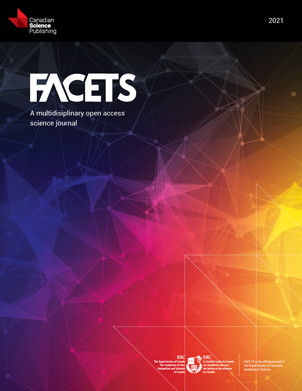The first five years of FACETS: Canada’s multidisciplinary open access academy journal
FACETS: the vision
A multidisciplinary journal with a Canadian perspective
FACETS is open to everyone
Our partnership with the Royal Society of Canada
Special collections in FACETS
Participatory Indigenous research and knowledge systems in FACETS
FACETS so far
Acknowledgements
References
Information & Authors
Information
Published In

History
Copyright
Sections
Subjects
Authors
Author Contributions
Competing Interests
Metrics & Citations
Metrics
Other Metrics
Citations
Cite As
Export Citations
If you have the appropriate software installed, you can download article citation data to the citation manager of your choice. Simply select your manager software from the list below and click Download.
There are no citations for this item
